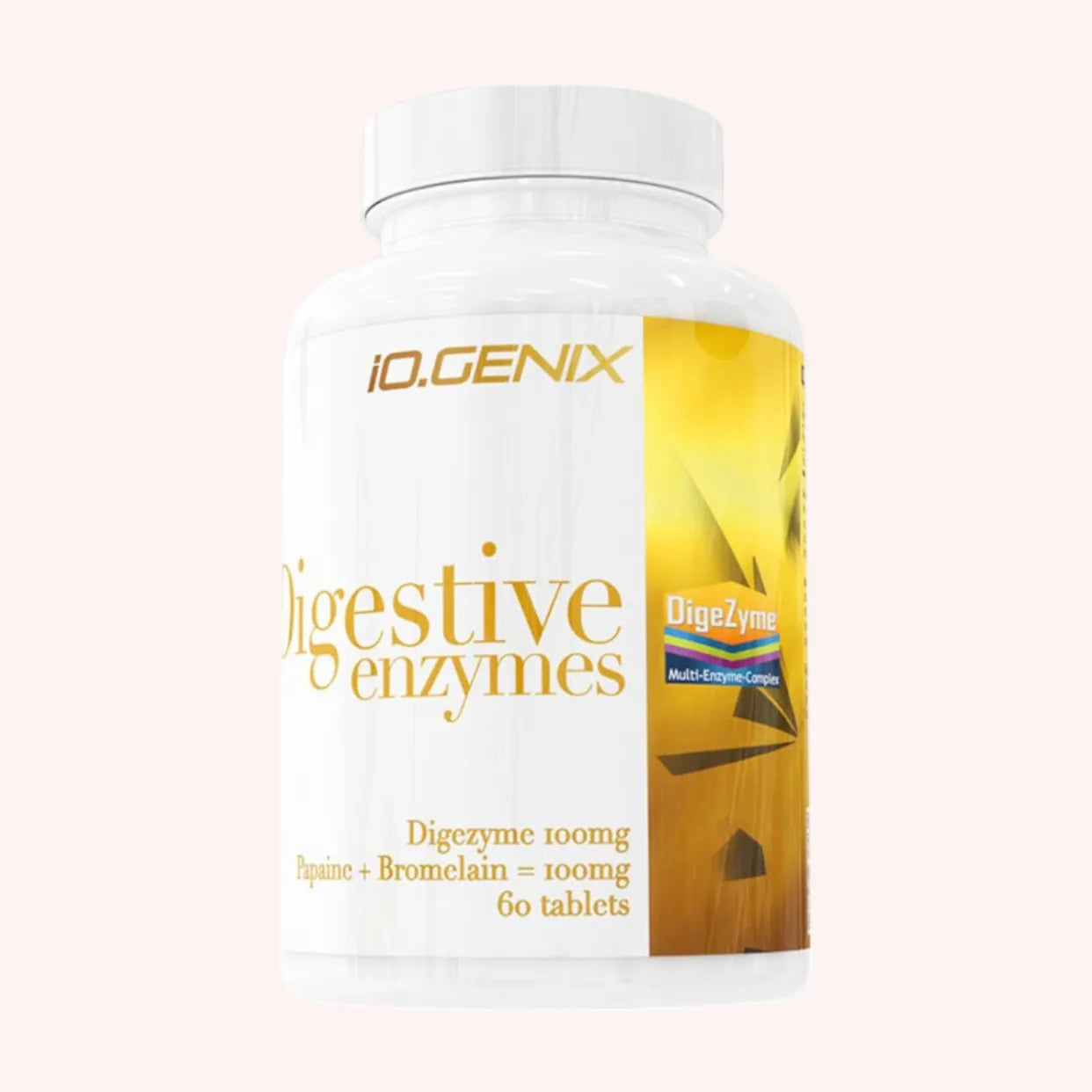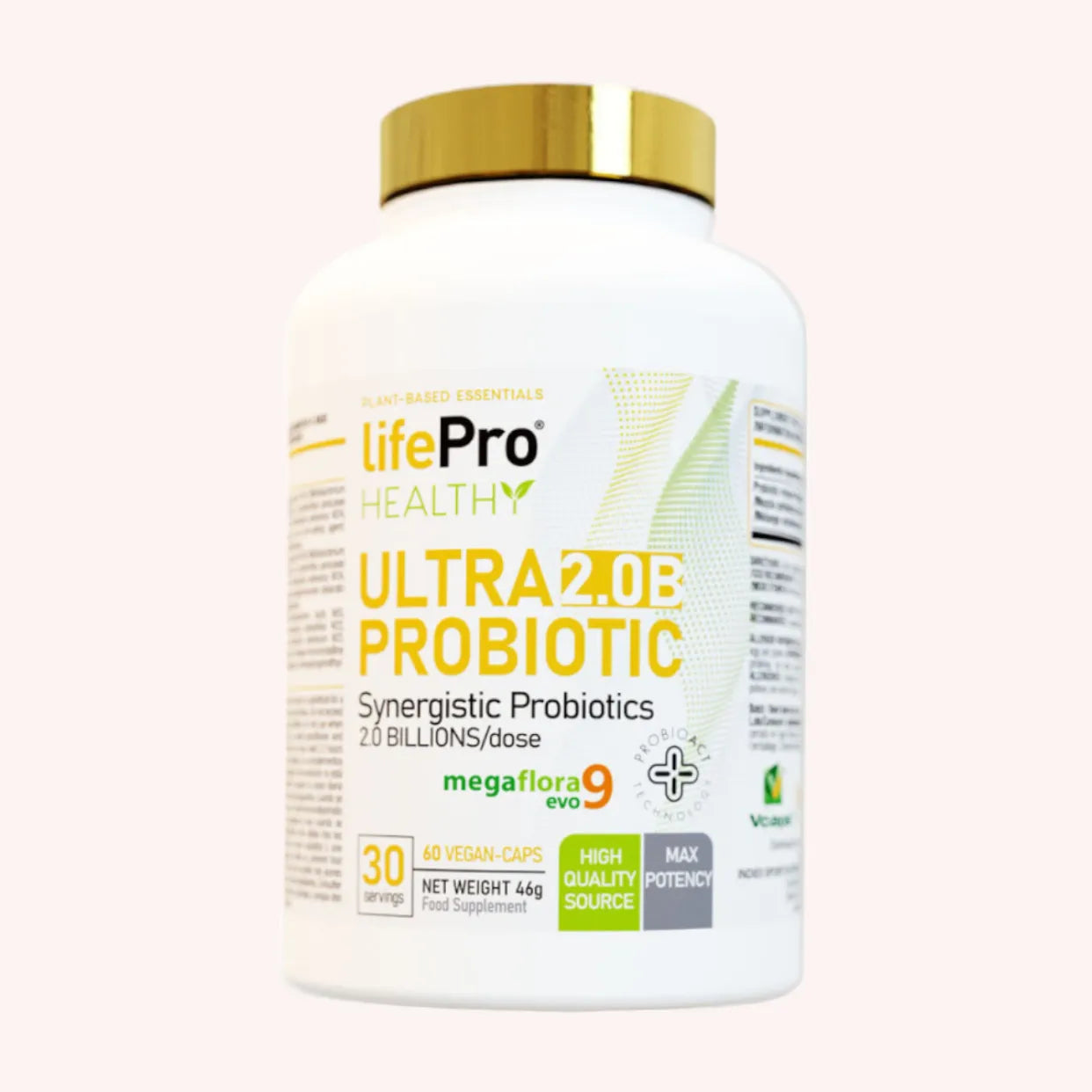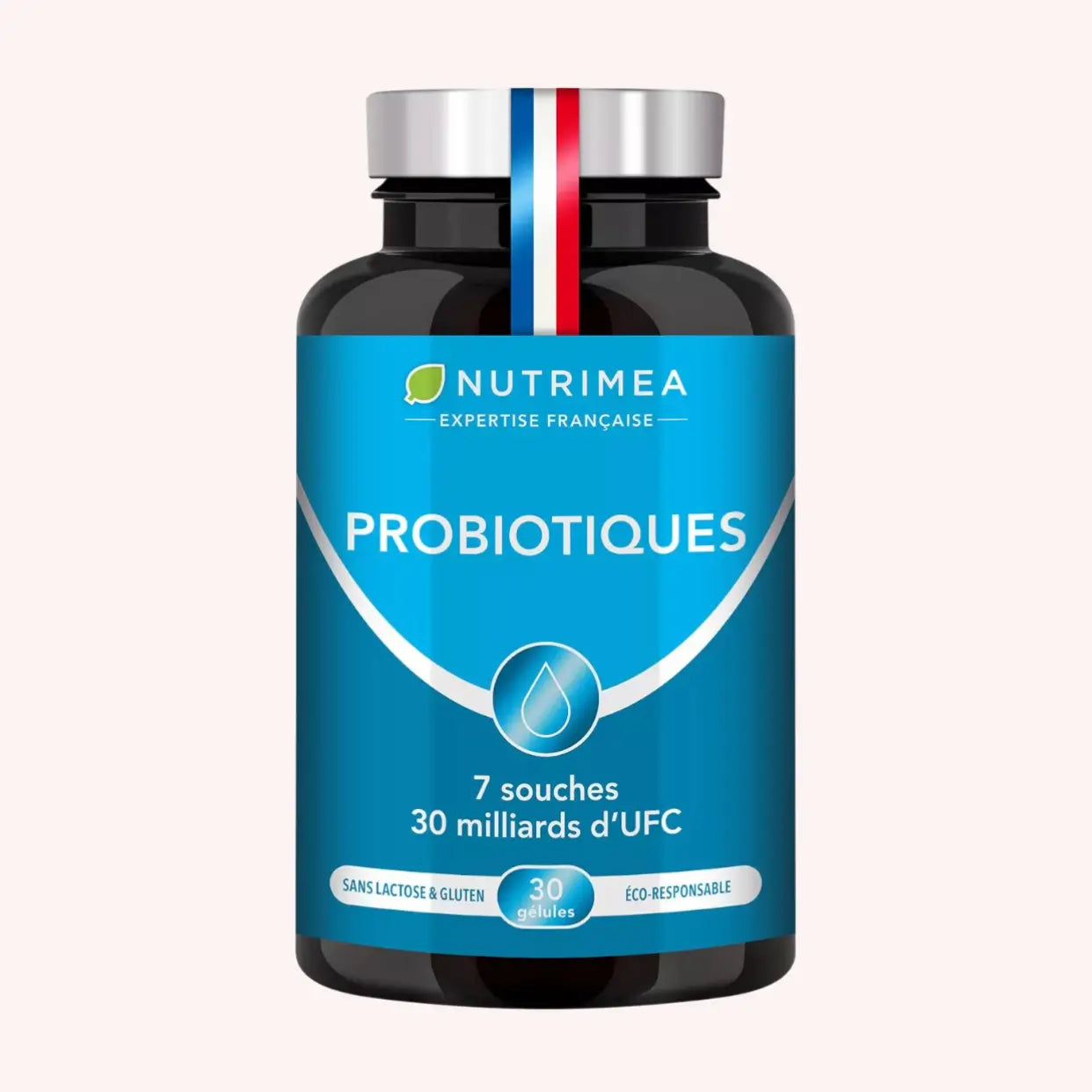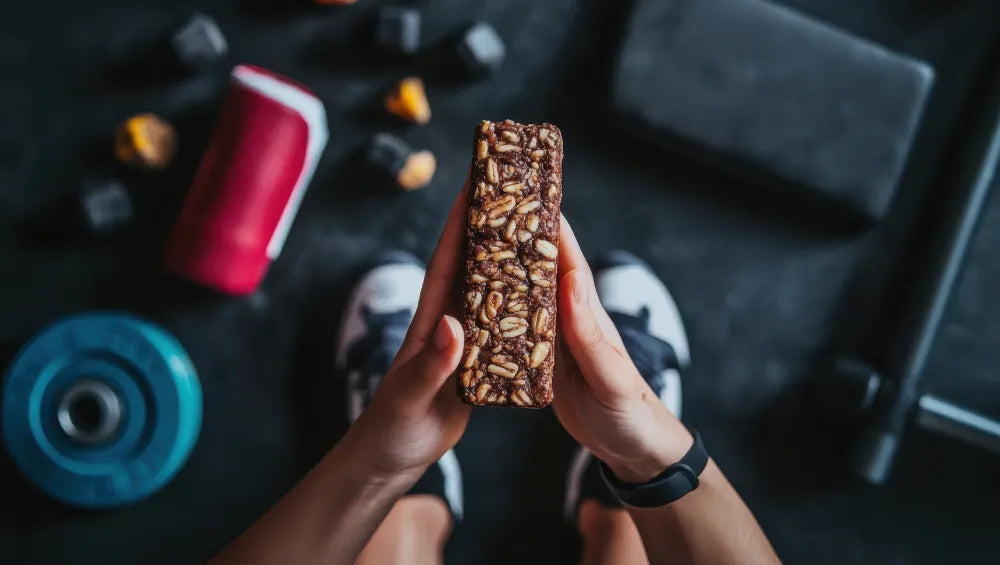Digestion is a complex process, but it's fundamental to our body's health. Not only does it break down food to extract essential nutrients, but it's also the starting point for many biological functions. This is why a healthy diet can have a significant impact on digestive health, especially for active individuals, such as those who practice bodybuilding or fitness.
In this article, we will explore how diet can influence digestion, the role of the gut microbiota, and best dietary practices to improve digestion on a daily basis.
The importance of diet for optimal digestion
Digestion is a complex process that begins as soon as we chew our food. As we chew, enzymes in saliva, such as amylase, begin breaking down carbohydrates. This first step is crucial because it prepares food for passage into the stomach and intestines, where the digestive process continues.
In the stomach and small intestine, specific enzymes break down each type of nutrient: Pepsin helps digest proteins, while amylase and lipase continue the digestion of carbohydrates and fats. These enzymes are produced by the body, but their effectiveness also depends on what we eat. For example, a diet rich in fiber , protein , and healthy fats will optimize the production and action of these enzymes.
At the same time, the gut microbiota , made up of billions of beneficial bacteria, plays a central role in this breakdown. These bacteria help break down foods that our bodies cannot digest on their own, such as fiber, and transform nutrients into compounds that nourish our intestinal cells. A balanced microbiota is essential for maintaining smooth digestion and optimal nutrient absorption.
Thus, a suitable, nutrient-rich, and balanced diet not only supports the production of digestive enzymes but also the balance of the intestinal microbiota. Together, these elements ensure efficient digestion and better absorption of nutrients essential for our health.
Best Foods for Healthy Digestion: Fiber and Key Nutrients
To promote smooth digestion, it's essential to consume foods rich in fiber, including vegetables, fruits, legumes, and whole grains. These foods are essential allies because they help stimulate intestinal transit and improve nutrient absorption.
Why fibers?
Dietary fiber is indigestible by the body, meaning it passes largely intact through the intestine, stimulating transit and nourishing the microbiota. In addition, it contributes to the balance of the intestinal microbiota, a key factor in digestion.
Some of the best foods for healthy digestion include:
- Green vegetables: Spinach, broccoli, zucchini, rich in fiber and antioxidants.
- Fruits: Apples, pears, bananas, rich in soluble fiber which promotes good intestinal regularity.
- Legumes: Lentils, chickpeas, kidney beans, which are good sources of fiber and vegetable protein.
The role of the intestinal microbiota in digestion: A complex system to nourish
The intestinal microbiota is the set of billions of bacteria present in our intestines, which actively participate in digestion and the management of our immune system.
Why is a healthy microbiota essential?
A balanced microbiota allows for better breakdown of fiber and complex nutrients, a task the body could not accomplish alone. For example, certain bacteria are able to break down insoluble fiber and extract short-chain fatty acids, which nourish intestinal cells and are beneficial for overall health. On the other hand, an imbalance in the microbiota can lead to digestive issues such as bloating, gas, or bowel problems.
One of the most effective ways to nourish a healthy microbiome is to consume probiotics and prebiotics . Probiotics are live microorganisms that, when ingested in sufficient amounts, provide health benefits, while prebiotics are indigestible compounds that promote the growth of beneficial bacteria. Sources of probiotics include yogurt, kefir, and fermented foods like sauerkraut. Prebiotics are found in foods like garlic, onions, and bananas.
Digestive Enzymes: Keys to Nutrient Breakdown
Digestive enzymes are proteins that help break down macronutrients such as proteins , carbohydrates , and fats , making them easier for our bodies to absorb. Each type of enzyme has a specific role: For example, amylase breaks down carbohydrates, lipase works on fats, and proteases break down proteins.
The production of these enzymes occurs primarily in the pancreas , but it also begins in the mouth , where amylase begins digesting carbohydrates early in the process. Once food reaches the stomach and small intestine, other enzymes continue to break down nutrients so the body can absorb them.
Certain natural enzymes from foods can also support this digestive process. For example, papaya contains an enzyme called papain , which helps break down proteins, while pineapple contains bromelain , another enzyme beneficial for protein digestion. These natural enzymes facilitate the absorption of nutrients while reducing the workload on our own enzyme system.
What can be done to optimize the production of digestive enzymes?
Optimizing the body's production of digestive enzymes can significantly improve digestion and nutrient absorption. Here are some tips to support their action naturally:
- Eat fresh fruits: Some fruits, such as papaya and pineapple , are rich in natural enzymes that help break down proteins. These fruits are especially beneficial when eaten after a protein-rich meal.
- Consume fermented foods: Foods like yogurt , kefir , miso , and sauerkraut are not only rich in probiotics , but also in natural digestive enzymes . These help break down macronutrients while nourishing a healthy gut microbiota, essential for efficient digestion.
- Avoid excess sugar and processed foods: A diet too high in refined sugar and ultra-processed foods can disrupt the balance of gut bacteria and impair the production of digestive enzymes. These foods can also slow down the digestive process, which can lead to digestive discomfort like bloating or gas.
- Consider digestive enzyme supplementation: In some cases, digestive enzymes can be taken as a dietary supplement to support digestion. However, it is important to consult a healthcare professional before starting any supplement to ensure it is right for your needs.
Cooking Food: How Does It Affect Digestion?
Cooking affects food digestion. Some foods, such as vegetables, are easier to digest when cooked, while others, such as fruits, are better eaten raw. For example, steaming vegetables helps retain their nutrients while making their fiber softer and easier to digest.
Optimal cooking methods for digestion:
- Steaming: It helps preserve nutrients while making food easier to digest.
- Slow cooking: It helps break down fiber and make proteins more tender, making them easier to digest.
- Avoid overcooking: Cooking for too long or at high temperatures can destroy vitamins and minerals in foods, reducing their digestive benefits.
How to balance your diet for optimal digestion?
To optimize digestion, it is essential to follow a few simple but effective dietary principles:
- Favor soluble and insoluble fiber: A combination of both types of fiber is ideal for supporting bowel movements. For example, a salad made with green vegetables (insoluble fiber) and grains like oatmeal (soluble fiber) is a great option.
- Hydration: Proper hydration is essential for fiber to do its job properly. Water also helps loosen stools and promote regular bowel movements.
- Eat slowly and chew properly: Digestion begins in the mouth. Eating slowly and chewing thoroughly allows the enzyme amylase to begin breaking down carbohydrates before they even reach the stomach.
- Eat balanced meals: In addition to fiber, meals should contain a balanced proportion of protein, carbohydrates, and fats to ensure a consistent supply of nutrients and avoid digestive upsets.
Conclusion: A healthy diet for healthy digestion
Effective digestion depends not only on gut enzymes and bacteria, but also on the food choices we make every day. By incorporating foods rich in fiber, probiotics, and natural enzymes, and adopting appropriate dietary practices, you can greatly improve your digestive well-being.
Remember that for those who exercise, optimal digestion is essential for nutrient absorption and physical performance.
Sources:
- Dupont, D., Feunteun, S., Marze, S., & Souchon, I. (2017). Structuring food to control its disintegration in the gastrointestinal tract and optimize nutrient bioavailability . Innovative Food Science & Emerging Technologies. DOI: https://www.sciencedirect.com/science/article/abs/pii/S1466856417302618?via%3Dihub
- Sensoy, I. (2021). A review on the food digestion in the digestive tract and the used in vitro models . Current Research in Food Science. DOI: https://www.sciencedirect.com/science/article/pii/S2665927121000307?via%3Dihub










